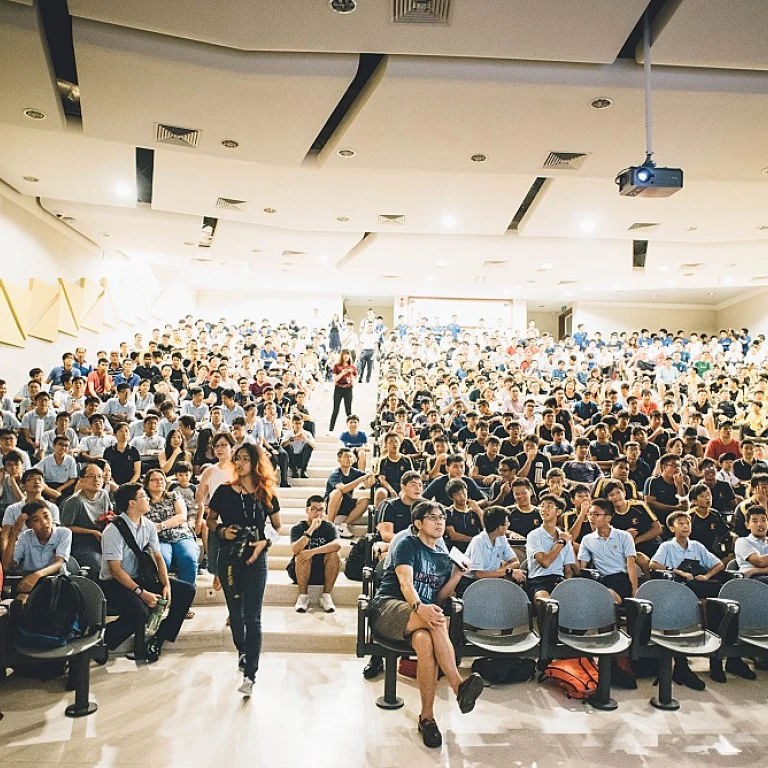
Understanding Prehire Assessments
Grasping the Essence of Prehire Assessments
Understanding the multifaceted nature of prehire assessments is crucial in the employment process. These assessments are designed to evaluate various aspects of a candidate's ability and skills, ensuring that they align with a company's needs. By integrating pre hire assessments, employers can better gauge a candidate's suitability for a role, often leading to more effective hiring decisions. Prehire assessments often comprise multiple types of tests. These assessment tests can range from skills evaluations to emotional intelligence tests, each aiming to paint a clearer picture of a candidate's strengths and areas for improvement. By implementing these tests, employers not only gain insights into a candidate's potential performance but also streamline the hiring process. Another aspect is the diversity of assessment formats. Whether it's an online test or an in-person evaluation, the aim is to assess candidates’ competencies in a fair and structured manner. This might include evaluating their problem-solving capabilities, soft skills, and ability to thrive in a given job environment, such as a call center or a customer service role. Implementing prehire assessments thoughtfully can significantly improve the candidate's journey. By offering clear instructions and setting realistic expectations, organizations ensure that candidates feel valued and understood during the hiring process. Understanding these facets of prehire assessments is pivotal for delivering a positive candidate experience. For more insights on how to enhance this experience, exploring mastering high-volume recruiting can provide practical strategies and detailed guidance.The Role of Prehire Assessments in Candidate Experience
Supporting a Seamless Journey for Candidates
An effective prehire assessment plays a pivotal role in shaping a candidate's journey through the hiring process. When thoughtfully designed, it evaluates candidate skills, such as problem-solving abilities and soft skills, without creating a cumbersome experience. Pre-employment assessments must bear in mind the candidate's perception, balancing an objective evaluation with an engaging process. The candidate's journey often includes navigating assessments that will test their various abilities. Such assessments should not only evaluate a potential hire's capabilities but also reflect positively on the company. Creating an assessment center that offers a clear, fair, and concise testing environment enhances the overall candidate experience. Consequently, when tests assess a candidate’s potential, they must do so while respecting the candidate's time and effort. A vital aspect of prehire assessments is that they create a first impression and offer the company an opportunity to portray itself as a fair and customer-oriented employer. By integrating well-structured assessment tests, companies can significantly impact a candidate’s decision to proceed through an employment process. This candidate-centered approach benefits not just the candidates but also the companies looking to attract the best talent, especially in competitive fields like call centers and customer service. Moreover, these assessments will help in determining the most suitable candidates, ensuring that they meet not only the specific job requirements but also align with company culture. It’s essential to remember that assessment tests are a two-way street; they stand as both a test of candidate ability and a reflection of the employer's values. By focusing on a candidate’s experience, companies can streamline the process from the initial application through to the final hiring decision. Overall, successful pre-employment assessments contribute significantly to both the candidates and the company's objectives. An emphasis on candidate experience during this crucial phase positively influences the candidate's perception and willingness to engage, as discussed in a comprehensive piece on mastering high-volume recruiting, which highlights the importance of streamlining the candidate journey. Whether it's a contact center or a call centre, the goal remains the same: to offer a productive and pleasant experience to everyone involved in the hiring process. For more insights into enhancing candidate experience, leading to more informed hiring decisions, you can explore mastering high-volume recruiting here.Designing Candidate-Friendly Assessments
Crafting Assessments That Respect Candidates
Designing candidate-friendly assessments is crucial in ensuring a positive experience for job seekers. The process begins with understanding the candidate's perspective and creating assessments that are not only effective but also respectful of their time and effort. This involves a careful balance between evaluating necessary skills and maintaining a candidate-centric approach.
When developing assessments, it is essential to consider the following elements:
- Relevance: Ensure that the assessment tests are directly related to the job role. This means focusing on skills and abilities that are essential for the position, such as problem-solving for a customer service role or communication skills for a call center position.
- Clarity: Clearly communicate the purpose and structure of the assessment. Candidates should know what to expect and how the test evaluates their abilities. This transparency will help reduce anxiety and improve the overall experience.
- Length: Keep assessments concise. Long and tedious tests can be discouraging and may lead to candidate drop-off. Aim for a balance that allows you to gather necessary information without overwhelming the candidate.
- Accessibility: Make sure that the assessments are accessible to all candidates, including those with disabilities. This might involve offering alternative formats or ensuring compatibility with assistive technologies.
By focusing on these aspects, employers can create a more engaging and respectful assessment process. This approach not only enhances the candidate experience but also reflects positively on the company's brand. For a deeper dive into creating comprehensive assessments, consider exploring achieve a comprehensive career assessment for additional insights.
Balancing Objectivity and Candidate Engagement
Ensuring Fairness While Keeping Candidates Engaged
Prehire assessments are pivotal in determining the suitability of a candidate for a specific job. They evaluate abilities, problem-solving skills, soft skills, and overall candidate ability to ensure a successful hire. However, balancing objectivity with candidate engagement can be challenging. To create a balanced process, it is essential to design assessments that minimize bias and offer a fair assessment of candidate abilities. Objective measurements can be achieved through standardized testing methods that focus on skills pertinent to the role, whether it's in customer service, call centers, or other industries. This way, the assessments can accurately evaluate a candidate's suitability for the job without favoritism. While objectivity is important, it is equally crucial to maintain a level of engagement that prevents assessments from feeling like a tedious chore. Engagement can be fostered by designing assessments that are concise and relevant—with questions that directly apply to the job at hand. For example, a call center assessment may include scenarios that assess a candidate's ability to handle tough customer service calls, reflecting real-world tasks they might handle. Additionally, providing clear instructions and setting realistic expectations can help candidates feel more at ease and prepared for the tests. Clear communication regarding what the pre-employment assessment will cover, its duration, and how it ties into the job role shows candidates that the employer values transparency and respect. Ultimately, a balanced approach between objectivity and engagement not only meets the employer's need for comprehensive candidate evaluation but also enhances the candidate's experience, making them feel respected and valued throughout the hiring process.Feedback and Communication During Assessments
Maintaining Open Channels of Feedback
Effective communication and feedback during the assessment phase are vital to enhancing the candidate experience. Candidates often find assessments daunting, particularly when the stakes involve securing employment. To alleviate anxiety and foster a positive experience, it’s essential to establish clear and consistent communication throughout the pre employment process. One of the fundamental aspects is setting expectations from the onset. Let candidates know what the assessment tests will cover, how long they should prepare, and when they will receive feedback. This transparency not only helps them prepare more effectively but also instills a sense of fairness and respect for their time and effort.Providing Constructive Feedback
After assessments, offering constructive feedback is crucial for maintaining engagement. Many candidates appreciate insights on their performance, whether successful or not. Feedback should highlight both strengths and areas for improvement, particularly in skills relevant to the job. For example, if the test assesses problem-solving abilities, detail how the candidates fared in that section and suggest ways they could enhance their skills. Offering personalized feedback can significantly boost a candidate’s view of the hiring process, even if they are not ultimately selected. It reflects a company’s dedication to helping candidates grow, thereby reinforcing the organization’s reputation as a desirable employer.Facilitating Two-Way Dialogue
Creating an environment where candidates feel comfortable sharing their experiences can yield valuable insights into the effectiveness of your assessments. Encourage candidates to express any feedback they might have regarding the process. This can be through surveys, direct communication, or post-assessment interviews. Establishing this two-way dialogue helps organizations refine their assessment strategies to better serve future candidates. It also underscores a commitment to evolving and adapting to the needs of the employment market, ultimately leading to a more efficient and candidate-friendly hiring process. Preserving the balance between evaluating candidate ability and maintaining a supportive atmosphere can be achieved by prioritizing open and ongoing communication. By doing so, organizations can transform assessments from a mere screening tool into an enriching experience that adds value for both candidates and companies alike.Leveraging Technology for Better Assessments
The Power of Technology in Prehire Assessments
In today’s competitive job market, leveraging technology in prehire assessments is no longer optional but essential. Integrating technological solutions can greatly enhance the quality of hire and improve the overall candidate experience. There's a wealth of tools available that streamline the process, making it more enjoyable and efficient for both candidates and hiring teams.- Automated Testing Platforms: These platforms can administer various employment assessments, such as skills and soft skills tests, with ease. Automation ensures that the test evaluates candidates’ abilities accurately, saving time and resources while minimizing human errors.
- AI-Powered Evaluations: Artificial intelligence can improve how tests assess and interpret candidate responses. With its ability to analyze large volumes of data, AI can predict job performance with a higher degree of accuracy, ultimately leading to better hiring decisions.
- Interactive Assessment Tools: Engaging candidates with interactive tools can enhance the assessment experience. For instance, immersive simulations for call centers or customer service roles can evaluate a candidate's problem-solving abilities in real-time scenarios, providing a realistic preview of job expectations.
- Data Analytics for Insights: By employing data analytics, companies can identify trends and patterns, helping refine the assessment process and improve candidate selection. This strengthens the objectivity of employment assessments, aligning them more closely with job requirements.













